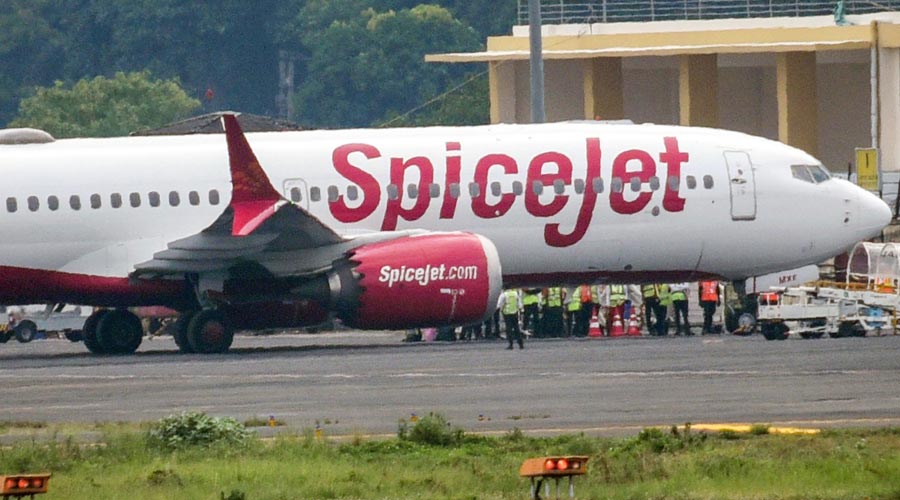Aviation regulator DGCA has directed budget carrier SpiceJet to send oil samples of the entire Q400 fleet of 14 operational aircraft to Pratt & Whitney Canada to ascertain the presence of metal and carbon seal particles after smoke was detected in a plane cabin recently.
Repeated snags have been reported in SpiceJet’s Bombardier Q400 fleet in recent months.
On October 12, a SpiceJet plane coming from Goa made an emergency landing at Hyderabad airport after smoke was detected in the cabin.
In a statement, the DGCA said there was evidence of engine oil in engine bleed-off valve, which led to the oil entering the aircraft’s air-conditioning system and caused the smoke.
The low-cost carrier has been asked not to send any of the Pratt & Whitney (PW) PW150A engines to Standard Aero, a maintenance organisation in Singapore, after a probe into a few incidents showed that snags had been detected in engines overhauled by this company.
The airline has a fleet of 14 operational Q400 planes and they have 28 PW150A engines.
“One time boroscopic inspection of all (Q400) operational engines (will be conducted) within a week and completion of boroscopic inspection on three engines, which have been received from Standard Aero, Singapore, (to be done) by Monday night,” the DGCA said.
Given the number of incidents reported in SpiceJet Q400, the regulator said it was “keeping a close watch on the situation and shall take all appropriate action to avert any untoward incident”.
The airline has also been asked to send engine oil samples to PW Canada for PW150A analysis “to ascertain presence of metal and carbon seal particles”.
After investigating the most recent smoke-in cabin incident on a SpiceJet Q400, the DGCA has made some additional steps mandatory for this aircraft.
“Engine oil samples (will) be periodically drawn every 15 days instead of the present 30 days and sent to PW Canada for analysis to ascertain presence of metal and carbon seal particles.
“One time boroscopic inspection of all operational engines within one week and completion of the boroscopic inspection on 3 engines, which have been received from
Standard Aero, Singapore, by Monday night,” the regulator said.
The DGCA had on July 27 ordered SpiceJet to operate a maximum of 50 per cent of its flights, which were approved in the summer schedule, for eight weeks owing to a series of incidents involving its flights. It had last month extended the restriction till October 29 as a matter of “abundant caution”.
The budget carrier is facing acute liquidity crunch for quite some time. SpiceJet posted a net loss of Rs 789 crore in the June quarter.











